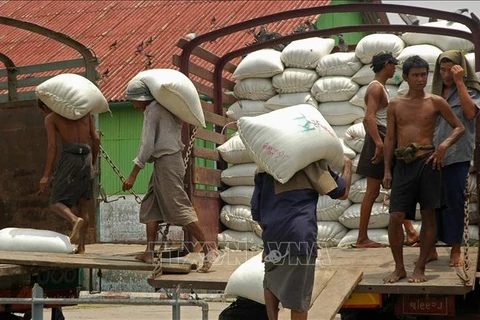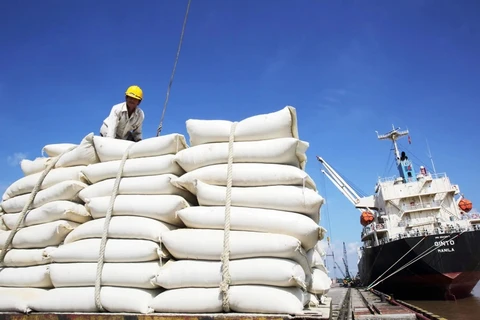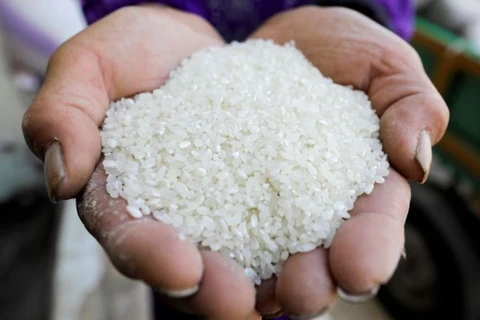 At the 2023 National Inflation Control Coordination Meeting in Jakarta, Indonesia, on August 31 (Photo: https://www.kompas.id/)
At the 2023 National Inflation Control Coordination Meeting in Jakarta, Indonesia, on August 31 (Photo: https://www.kompas.id/) Jakarta (VNA) - The Indonesian government has prepared a number of measures to deal with rising rice prices, which raises public concern in the Southeast Asian country.
Addressing the 2023 National Inflation Control Coordination Meeting in Jakarta on August 31, Coordinating Minister for Economic Affairs Airlangga Hartarto said the State Logistics Agency (Bulog) needs to ensure adequate rice reserves, and this is one of the main measures to control rice prices.
According to Hartarto, so far, the rice stock at Perum Bulog is 1.6 million tonnes. This number will increase because there will be a harvest of 400,000 tonnes by the end of the year.
The Indonesian government is implementing a social assistance programme with the distribution of 30kg of rice to each family starting from September 2023 to November 2024. The programme aims to subsidise rice for 21.3 million low-income households to ensure purchasing power for them.
The government is also actively negotiating with trade partner countries in the region on rice imports.
Local insiders said that Indonesia is suffering severe impacts caused by the El-Nino phenomenon, in which the rice industry may record a decrease by 5% due to severe weather.
Agriculture Minister Syahrul Yasin Limpo said that based on statistics, El Nino is having a strong impact on agricultural production, especially rice production.
Syahrul noted that the drought has affected 870,000 ha of agricultural land. Therefore, rice production is likely to decrease by 1.2 million tonnes this year, he said./.
























